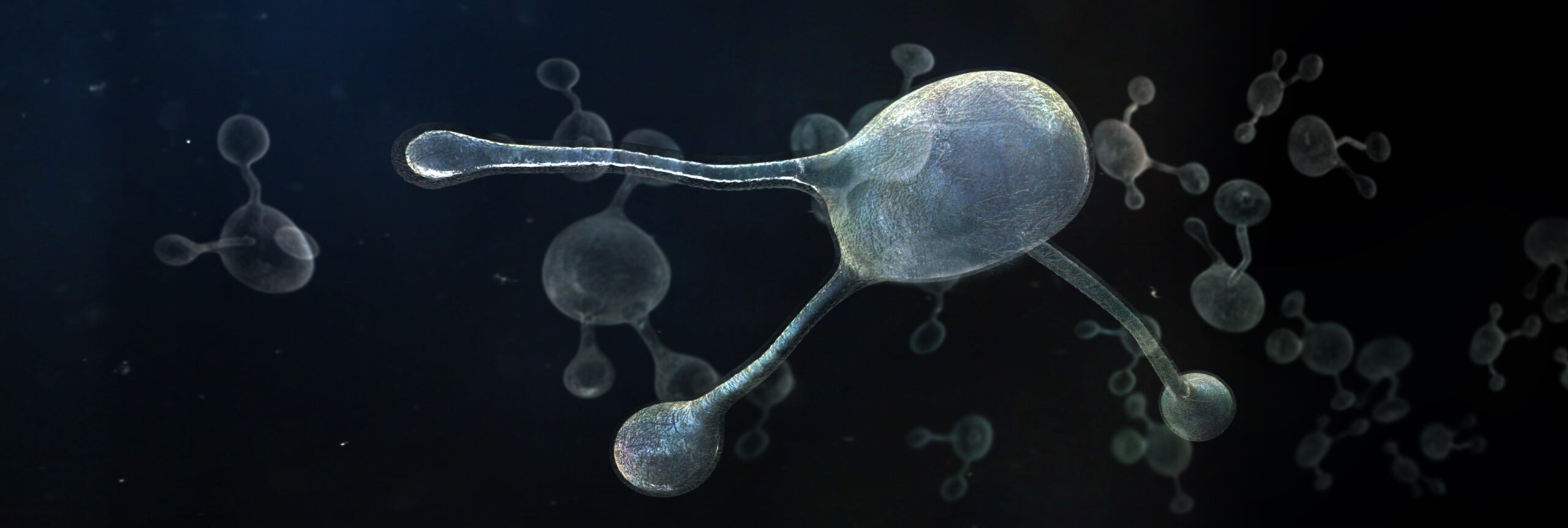Game of Swarms explores how living organisms work together without central control to adapt to changing conditions. Drawing on theories about self-organisation and swarm intelligence—common in the collective behaviour of decentralised systems, whether natural or artificial—, my artwork materialises into an audio-visual piece and a cooperative game that guides its participants towards new forms of relationship based on cooperation, rather than competition. The rules of the game are co-created through a series of workshops open to the public.
Together with a team of biologists from three different research centres, I focused on the collective behaviour of ants, bees and a slime mould, Physarum Polycephalum, which is a rhizomatic-form protist without brain but with great capacity of learning and complex problem-solving. I am interested in investigating these organisms as they exhibit efficient systems that survive without a commanding centre or leader, but through cooperation among their parts, questioning the old saw of ‘survival of the fittest’.
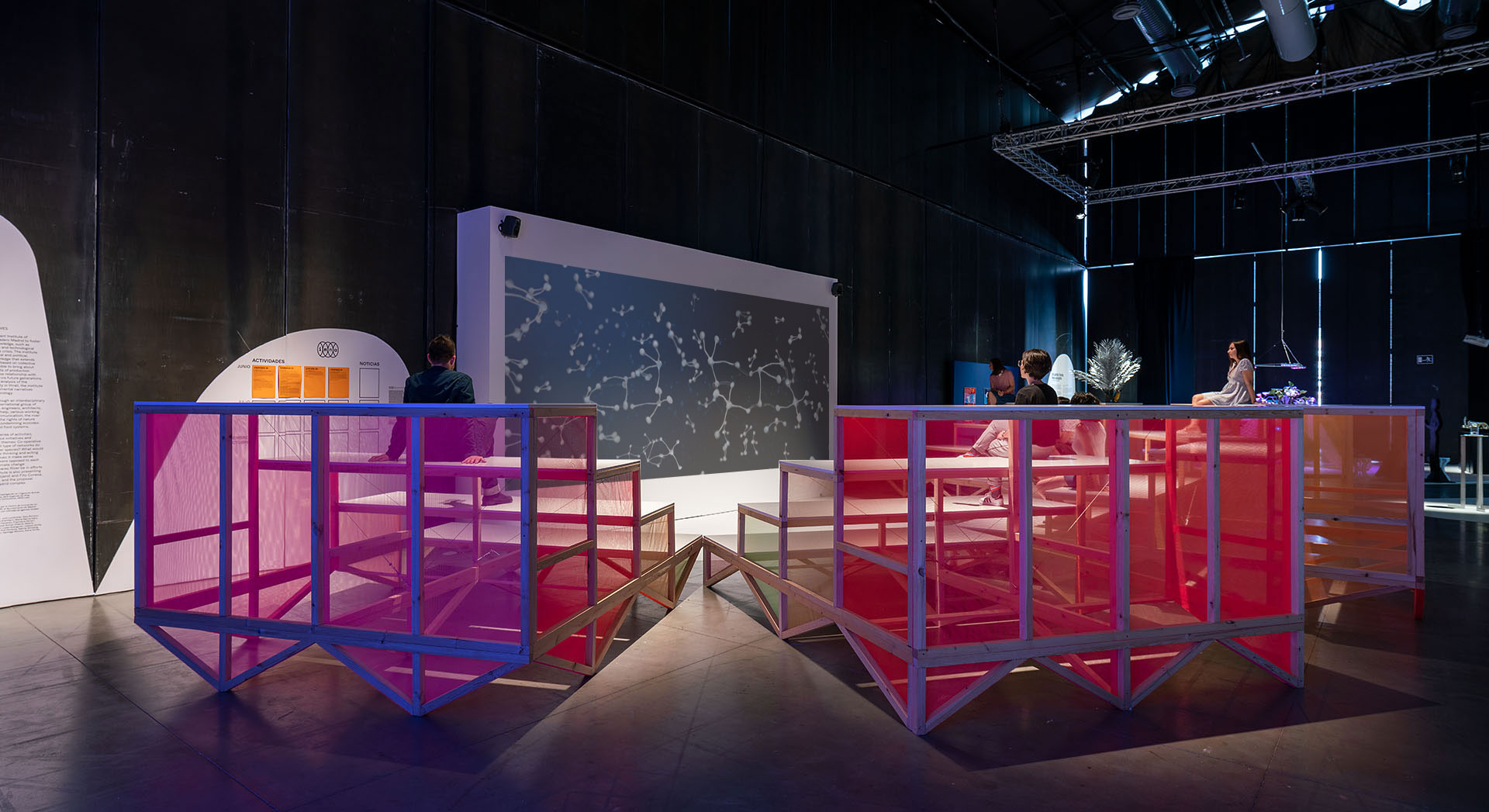
CONCEPTUAL FRAMEWORK
I propose the swarm as a framework to discuss how the world is tackling global issues, such as the present Covid-19 pandemic, the environmental crisis and the politics of a world that is still delimited by the boundaries of nation-states.
How will the actors involved in these challenges have agency and response-ability to adapt together to the transformations brought about by our disruptive present?
How do these changes inspire new ways to build and sustain a community that cares for the lives of a world where individual values prevail over the notion of solidarity?
GoS poses these questions while claiming the self-organised and autopoietic forces of living matter. It seeks to stress a nonhierarchical relationship among living organisms—such as in social insects—, which work together through local interactions to achieve a common goal. It is an initiative to spark new ways of thinking inspired by the behaviour of swarms in nature.
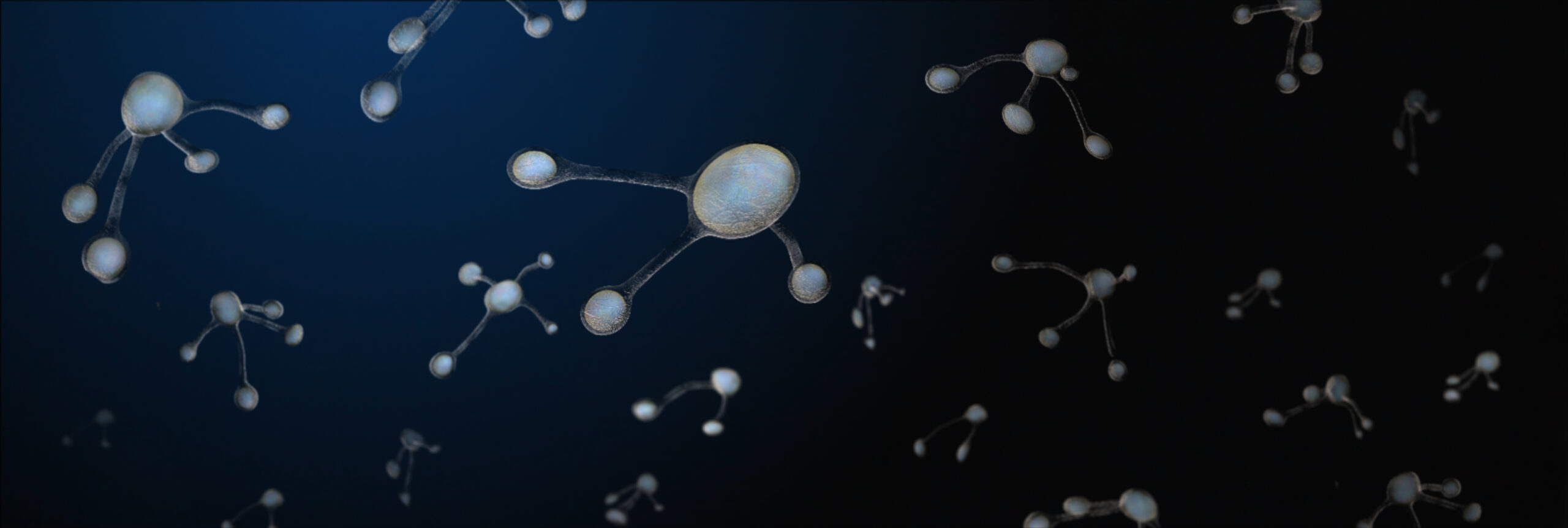
Game of Swarms is thus a communication device as well as the register of my artistic research, whose expanding use generates networks of actors and players to respond to the urgency of global issues, such as the climate change and the environmental crisis.
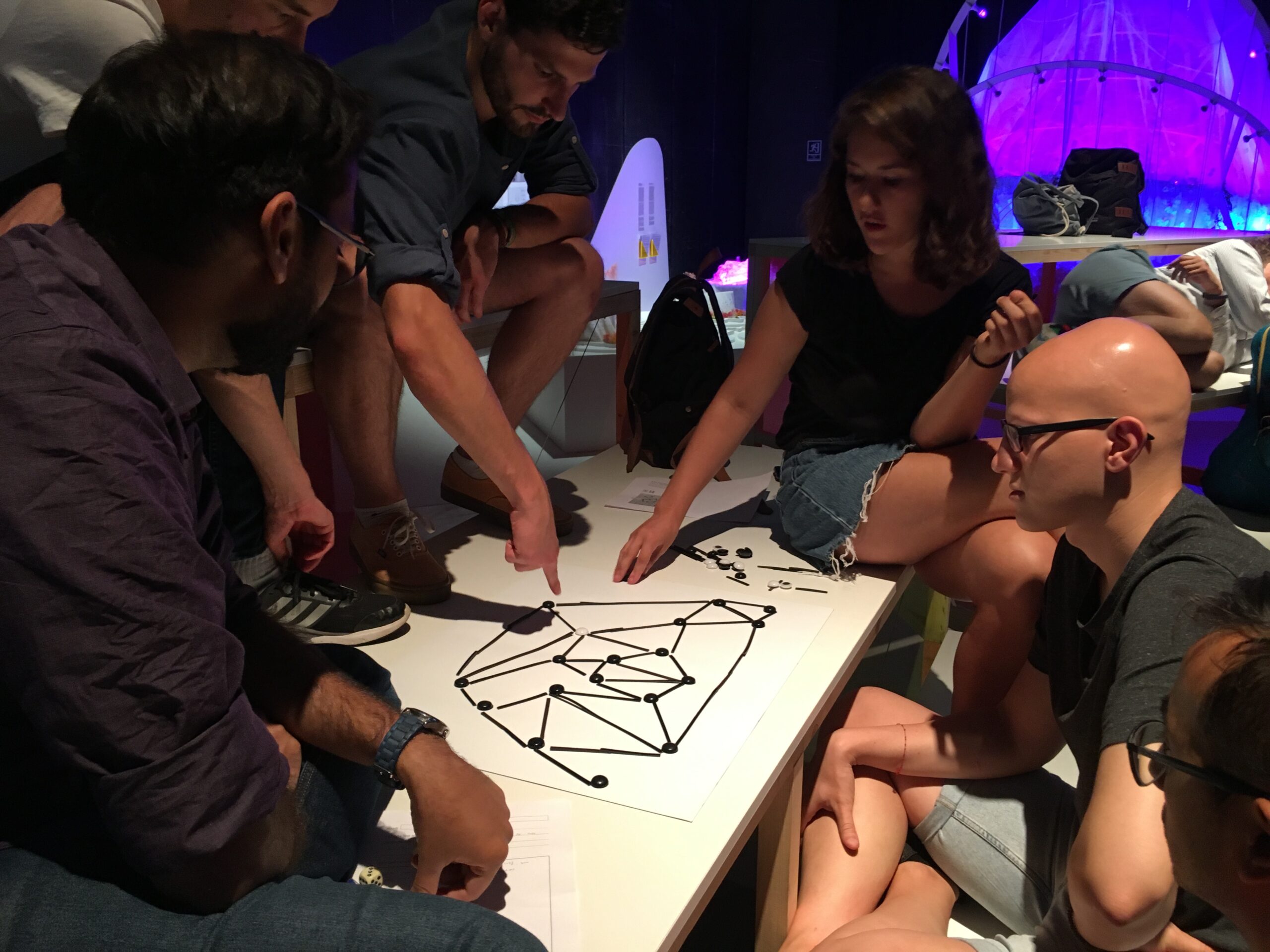
The Innovation and Technology for Development Centre from the Universidad Politécnica de Madrid (itdUPM) has introduced and played with Game of Swarms in one of its master course about networks and systems in November 2019.
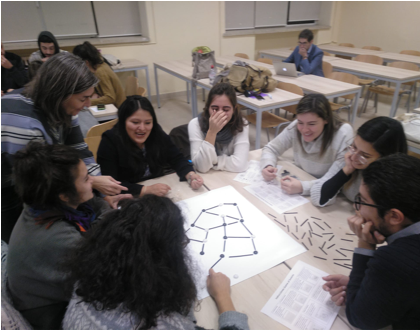
Credits:
Commissioned by the Mutant Institute of Environmental Narratives
Supported by Platform-Cities (Universidad Politécnica de Madrid, City Council of Madrid and Matadero Madrid)
Biologists: Audrey Dussutour (University of Toulouse/France), Sara Arganda (Universidad Rey Juan Carlos de Madrid/Spain), and Patricia Nunes Silva (University of Vale do Rio dos Sinos, Rio Grande do Sul/Brazil)
Engineers: María Angeles Huerta Carrascosa and Carlos Mataix (Polytechnic University of Madrid)
3D animation: Lilian Doring
